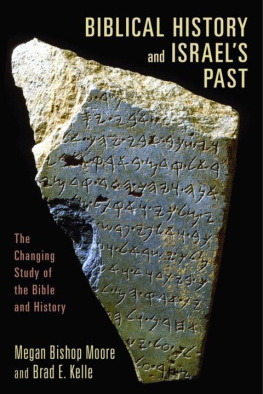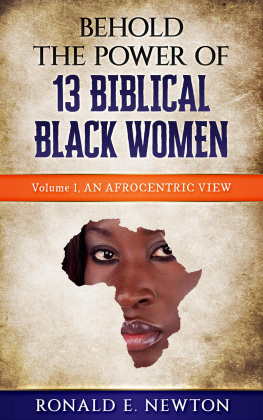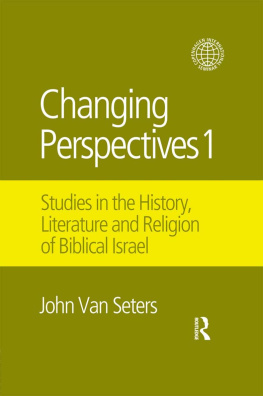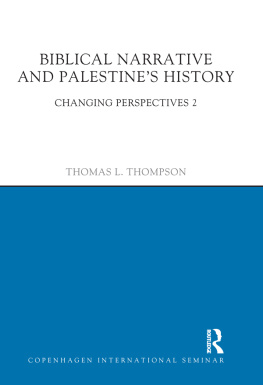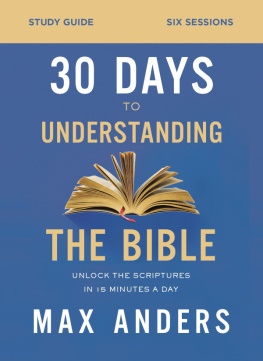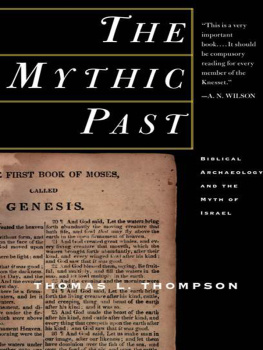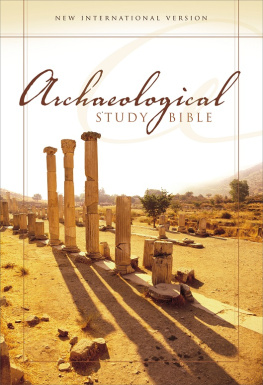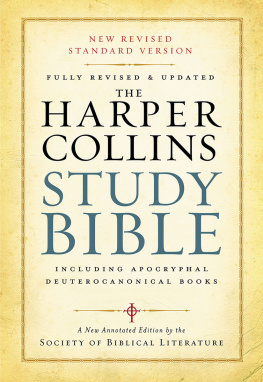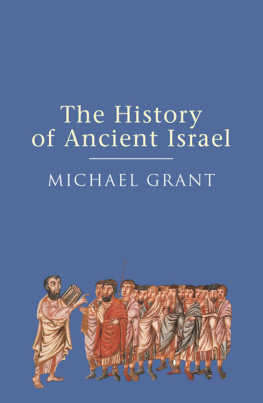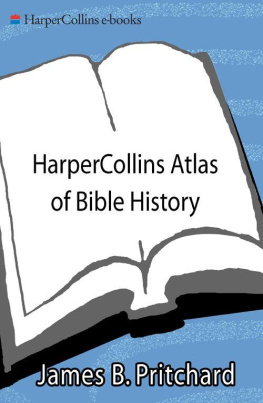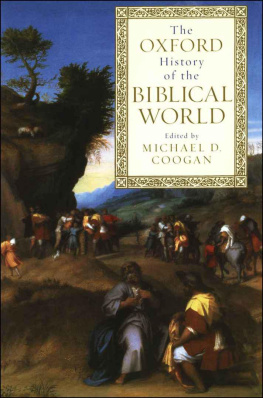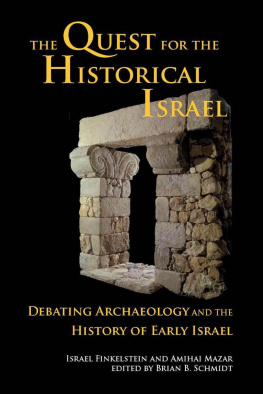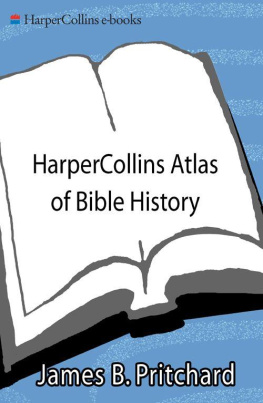The Changing Study of the Bible and History
Megan Bishop Moore and Brad E. Kelle





xv
i








i. The Study of the Bible and the Study of Israel's Past
The primary aim of this book is to explore the changing study of the Bible and history since the middle of the twentieth century. The study of ancient Israel's history is a multifaceted enterprise. At its core is the desire to reconstruct and understand the years central to the biblical story. Thus, "biblical history" was for a long time an acceptable name for this endeavor, as the Bible was both its main subject and its main source. Over the last half of the twentieth century and into the current one, however, the study of the history of Israel has redefined itself. Though study of the past to explain, illuminate, and clarify the biblical story is still a goal of paramount importance, it is no longer the discipline's single objective. Scholars interested in Israel's past have expanded the evidence they consider, and in doing so have opened doors to aspects of the past not necessarily relevant to illuminating the biblical text. Likewise, they have sought to tell the story of the past on its own terms without privileging the biblical perspective, at least theoretically. In short, the study of Israel's past has become broader than the study of biblical history, and, for some, broader also than what the term "Israel" implies.
The move from the study of biblical history to the study of Israel's past is ongoing, resisted by some, and complex. Indeed, the vast majority of research into Israel's past still is connected to questions of biblical history. This connection may be due to factors such as the interest of the audience of the research, the type of publication in which the research will appear, its likely consumers, the funding behind the research, the interests of the scholar, and the type of academic position he or she holds. In addition, while some academics may have developed a view of Israel's past that sees the Bible as sim ply an artifact of it rather than its defining relic, surely the Bible remains the reason that most people, from biblical scholars not working in the subdiscipline of Israel's history to the general public, are interested in Israel's past.
The Basic Outline of the Biblical Story of Israel's Past
In Genesis, God creates the world and populates it with life. Humans at first have exceptionally long life spans, and have direct contact with God and other divine beings. Anger and disappointment in humans prompt God to flood the earth, destroying all but the family of Noah and the animals Noah saves in his ark. One of Noah's descendants, Abraham, is called by God to leave Mesopotamia and settle in the land of Canaan. Abraham's sons and grandsons become the eponymous ancestors of groups in the area. Jacob, his grandson, is given the name Israel. His family moves to Egypt, where his son Joseph becomes a man of authority.
Exodus begins with Jacob's descendants having become numerous but suffering oppression in Egypt. With the help of God, Moses, a Hebrew who grew up in Pharaoh's house, leads the Hebrews out of Egypt and into the Sinai. The books of Leviticus, Numbers, and Deuteronomy are set during this wilderness period. After forty years, and Moses' death, Joshua leads the Israelites into the promised land, crossing the Jordan and taking much of the land by military conquest. Though the Israelites had pledged loyalty to God, whose personal name is Yahweh, on several occasions, in the book of judges they are portrayed as regularly worshiping other gods. This leads to cycles of oppression that are lifted when God appoints them a leader. By i Samuel, the Israelites are asking for a permanent leader. Saul is God's first anointed leader, but he is soon replaced by David, to whom God promises a lasting dynasty. David conquers large amounts of territory and his son Solomon rules a large kingdom. Solomon builds a temple to Yahweh in Jerusalem, which David had captured and made his capital.
The books of Kings report that after Solomon's death, his kingdom fractures. The tribes of the north follow a new leader, Jeroboam, and their kingdom is commonly referred to as Israel. Solomon's son Rehoboam inherits a small kingdom, usually called Judah, ruled out of Jerusalem. Israel's leadership changes from family to family for about two hundred years, and most of the rulers tolerate worship of gods other than Yahweh. Israel carries on a number of wars with neighboring entities, including Judah, before unsuccessfully challenging Assyrian hegemony in the area in the eighth century B.C.E. These wars form the backdrop for prophetic books such as Hosea, Amos, and First Isaiah (chapters 1-39). Israel's capital, Samaria, is captured by the Assyrians in 722. The area is resettled by Assyrian deportees from other nations, and the tribes that make up northern Israel disappear into the Assyrian Empire.
Assyria's activities in the area also affect Judah (see First Isaiah). Assyria destroys most of Judah and brings Jerusalem into submission in 701. When the Babylonians conquer Assyria, Judah comes into the Babylonian orbit. Judah still has monarchs descended from David, but these exhibit varying loyalty to Yahweh. The Babylonians take a stronger hand in Judah in the early sixth century, removing rulers and elites from Jerusalem (the prophet Ezekiel is among them) and setting up their own king. Judah continues to rebel, however, and in 586 the Babylonians destroy Jerusalem and the temple and take more Judahites into exile in Babylon. These events form the backdrop to several biblical books including Jeremiah and Lamentations. Daniel is also set in Babylon.
The conquest of the Babylonian Empire by Cyrus the Persian gives new hope to the exiles (see Isa. 40-55) and eventually allows them and their descendants the means to return to Jerusalem and rebuild the temple. In doing so, they are opposed by people who had remained in the area. Nevertheless, under Ezra and Nehemiah, the Jewish establishment in Jerusalem consolidates political and religious authority. The Hebrew Bible's chronological story ends in Persian-period Jerusalem.

